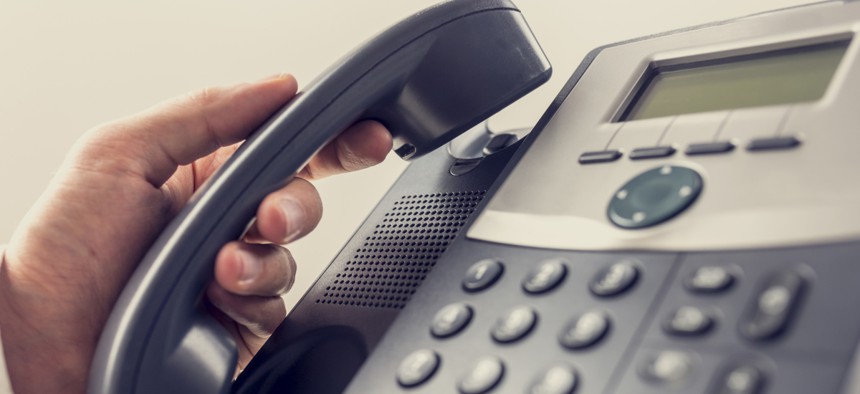Lawmakers Want the Next COVID-19 Relief Package to Support Suicide Prevention

Gajus/Shutterstock
Dozens of officials want the government to establish “9-8-8” as the new “9-1-1” for mental health crises.
Lawmakers from both chambers and across the political aisle pressed congressional leadership this week to include legislation in the next COVID-19 relief package that would establish “9-8-8” as the official dialing code for a national suicide prevention and mental health crisis hotline.
It’s the latest of several moves federal officials have made over the last two years in an attempt to enhance America’s suicide prevention efforts by widdling down the current ten-digit long phone number to increase accessibility. According to the more than 30 lawmakers who penned a letter to top members of the Senate and House of Representatives Tuesday, the current pandemic renders that change to be all the more necessary.
“As our country is working together to address this virus, it is crucial that mental health support is at the forefront of all of our minds,” the officials wrote.
Social-distancing orders, the unemployment surge, devastating realities of the medical frontline and beyond are amplifying anxiety and depression amid the national health crisis, with heartbreaking reports of COVID-19-related suicides becoming all too frequent. In their letter, the lawmakers note that on April 4, data from one call center in the nation’s network that had only 22 crisis calls related to COVID-19 in February, revealed that “that number grew by over 8,000% to 1,800 in March.”
The officials argue that instituting a three-digit hotline would save more lives during the global health emergency by boosting Americans’ ability to quickly reach help. ”When someone is suffering from a heart attack or medical emergency, everyone knows to call 9-1-1, but for mental health emergencies, an easy-to-remember number does not exist,” the lawmakers wrote.
And their request isn’t new. Congress in 2018 passed the National Suicide Hotline Improvement Act, which mandated the Federal Communications Commission assess the feasibility of using a shorter code for the National Suicide Prevention Lifeline—a national network of crisis centers that provides a 24/7, toll-free mental health support hotline. The federal agency released its findings in August 2019, and confirmed that such a change “would likely make it easier for Americans in crisis to access potentially life-saving resources.”
The commission subsequently moved forward with an official notice of proposed rulemaking to make 9-8-8 the official number late last year. On top of that, lawmakers from both chambers introduced and later passed the National Suicide Hotline Designation Act to formally set 9-8-8 as the universal number, and ensure that call centers across the country could access the resources needed to address the potentially forthcoming spikes in call volume, following the change.
But in the letter, the officials said that presently the Lifeline is still only reachable by dialing ten digits—“and this lack of accessibility serves as a barrier to Americans seeking immediate help in a mental health crisis.” So, they are calling for the inclusion of that bill in the next pandemic relief package the government offers up.
“The creation of this three-digit dialing code is essential in order to address the growing suicide crisis across the United States,” they wrote, adding that the bipartisan bill “is not just smart policy that will save lives, but it is also a statement that our government recognizes our country’s mental health crisis and is working across party lines to address it.”






